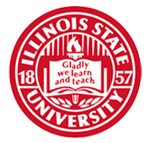Abstract
Although individuals with aphasia are commonly treated by speech-language pathologists, many clinicians entering the field feel under-prepared to work with this population. Undergraduate and graduate students need appropriate training that emphasizes person-centered care mapped onto evidence-based practice, combining high-quality research evidence, clinical expertise, and client preferences. Incorporating lived experience into curricula helps shape students’ knowledge and understanding of aphasia from the perspective of patients and carepartners. Using both quantitative and qualitative methods, this study examined the impact of in-depth exposure to the lived experience of aphasia on students across six US universities. Students read the book Identity Theft: Rediscovering Ourselves After Stroke (Meyerson & Zuckerman, 2019) and participated in other specified lived experience exposure activities with the author as part of their course-based training. Results suggest that the Identity Theft Experience supports a broader perspective of aphasia beyond solely language, emphasizes the shared journey in the lived experience, and supports the foundational aspects of the emerging clinician. Students’ level of engagement and rated value of each part of the Identity Theft Experience were high, and their perceived understanding of the impact of aphasia increased significantly after the experience. Students were affected by the first-hand accounts of aphasia and reported increased appreciation of living with aphasia in the context of families, local communities, and the broader healthcare system. They learned that hope is essential, recovery is not linear, and about the challenges for people with aphasia and their carepartners navigating shifts in identity.
Recommended Citation
Roos, B.,
Szabo, G.,
Brancamp, T.,
Hoover, E.,
Sandberg, C.,
&
Sather, T. W.
(2025).
The Effects of In-Depth Exposure to the Lived Experience of Aphasia on Student Learning.
Teaching and Learning in Communication Sciences & Disorders, 9(2).
DOI: https://doi.org/10.61403/2689-6443.1363




